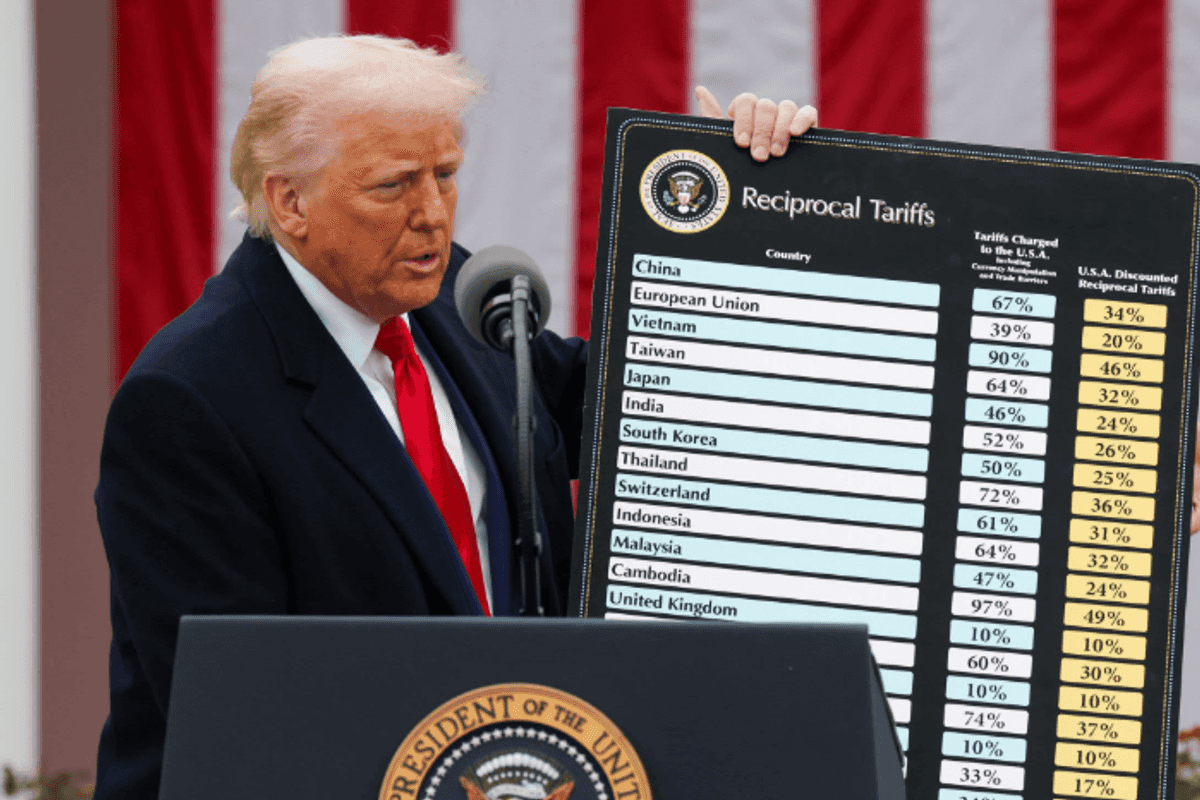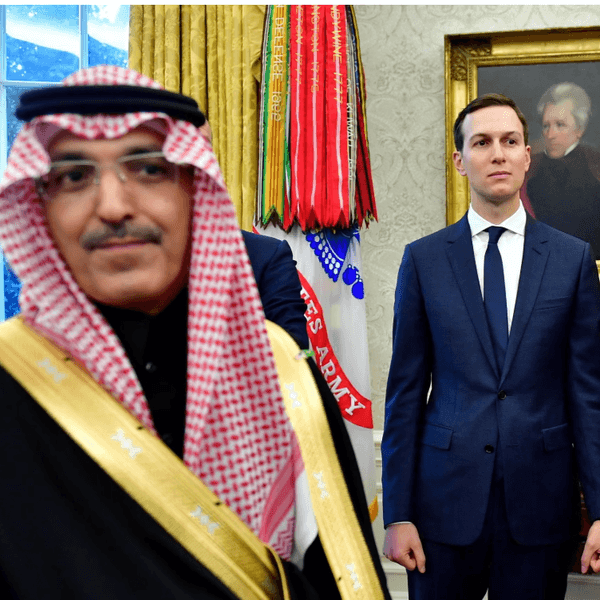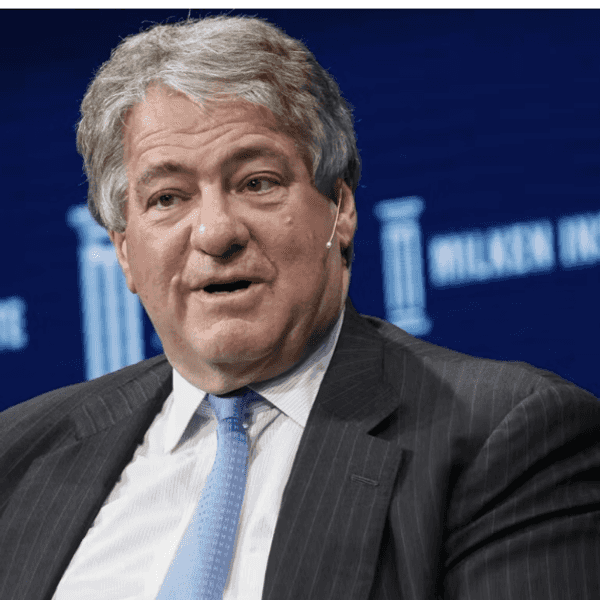Tariffs Can Serve The Public Interest (But Not Trump's Wacky Version)

I know many people have been saying in the wake of Charlie Kirk’s killing that we have to reach out to our political opponents to lower the temperature of political debate. In that spirit, I will make a case for Donald Trump’s favorite word: tariffs.
Many of the criticisms of Trump’s tariffs have been overblown. Tariffs by themselves will not crash the economy. Tariffs are a tax; as such they pull money out of people’s pockets and leave them with less to spend.
This undoubtedly has been a major factor in the slowdown in growth in 2025. Donald Trump has unilaterally imposed the largest tax increase ever and it has had an impact on the economy.
Tariffs have been used by many countries, including the United States, to industrialize and build up key industries. This was the intention of the tariffs that Biden imposed as part of the CHIPS Act and Inflation Reduction Act. Biden wanted to build up U.S. capacity in advanced computer chips, as well as batteries, solar and wind energy and electric vehicles.
Trump’s tariffs are not in the same vein. If there is any logic to the rates assigned to different products and countries, no one has been able to untangle it. It’s clear that campaign contributions matter, as does the willingness of foreign leaders to appease Trump.
But tariffs do raise revenue. There are questions about how much revenue we need to raise. I take seriously the admonishment from the Modern Monetary Theory economists that taxes are about reducing demand in the economy, not raising revenue for a government like the United States that prints its own currency.
We can print the money we need to finance things like health care and childcare, as long as we are not pushing the economy beyond its capacities and causing inflation. But whatever the economics may be, we have to live in a reality where deficit hawks have the power to shut down any spending they decide is leading to excessively large deficits.
There are more progressive ways to raise revenue. We can raise the top marginal tax rate substantially, getting more money out of the rich while leaving the bulk of the population untouched. We can force companies to give us non-voting shares of stock in place of income tax payments. That way we could be sure that we actually collect the tax rate we target. And we can have a sales tax on stock transactions, just as we do on the sales of shoes and computers.
But insofar as we need more revenue, tariffs are not necessarily a bad place to look. Many people across the political spectrum have long argued for a value-added tax (VAT), in effect a national sales tax. The United States is one of the few wealthy countries that does not have a VAT. A VAT is undeniably regressive, low- and middle-income people pay a higher share of their income in taxes than the rich. But if it funds progressive policies, like national health care, free college, childcare and other programs that benefit the poor and middle class, the net effect could still be progressive.
Tariffs can be seen as similar to a VAT. It only taxes a subset of items; goods not services and only imported ones, but it has the advantage of being a relatively easy tax to collect. We impose the tax when goods show up at the port.
Trump has made the process more difficult by having wildly different rates on the same products from different countries and different products from the same countries. It also doesn’t help that he constantly changes the tax rates depending on how he feels and who might have gotten him angry.
Setting up a VAT would require a new administrative structure to ensure that goods get taxed at each step of the production process. This means that, for example, in the case of cars, the steel would be taxed, each part would be taxed, the tires would be taxed. The tax on all these items then would get rolled into the price of the car.
In principle, this would be the better route to go, since the same revenue could be raised with a much lower tax rate. But a uniform tariff rate of say 15 percent on all items imported from all countries would not be a terrible way to go, if it is locked in.
The impact of a 15 percent tariff would be similar to the impact of a 15 percent drop in the value of the dollar in its effect on the cost of imports. A drop in the dollar also would make U.S. exports cheaper to people in other countries, which the tariff does not, so it has less effect on the trade deficit. However, the United States and its trading partners could adjust to a tariff of 15 percent, just like they can adjust to a decline in the dollar, as long as the tariffs are not constantly changing.
For this reason, if the U.S. were to go the route of relying on an import tax as way of raising revenue it would be important to lock in the rate. That would require unambiguous legislation from Congress setting the rate with extremely limited powers for the president to alter it for short periods of time. In order to make this clear to Chief Justice John Roberts and the Supreme Court, they should probably use all caps in the legislation and incorporate the full text of the first paragraph of Article 1, Section 8 of the Constitution.
There is still the issue of an import tax being regressive, but that is the same issue that arises with a VAT. The key point would be that it would be offsetting spending on health care, childcare, and education, not Donald Trump’s tax cuts for the rich and the grift by his family, friends and campaign contributors, or his ICE army. Most people would probably consider that a good deal.
Dean Baker is a senior economist at the Center for Economic and Policy Research and the author of the 2016 book Rigged: How Globalization and the Rules of the Modern Economy Were Structured to Make the Rich Richer. Please consider subscribing to his Substack.
Reprinted with permission from Dean Baker.
- Tariffs Spike Inflation -- And A Cut In Workers' Real Wages ›
- Trump's Tariffs Are Actually A Tax That Democrats Can Cut ›
- Fake Deal: How The European Union Made A (Fossil) Fool Of Trump ›
- Tariffs, Jobs And Why You Should Care About Poverty In Bangladesh ›
- 'Trump Slump': Tariffs And Imperial Attitude Are Killing Tourism Industry ›








